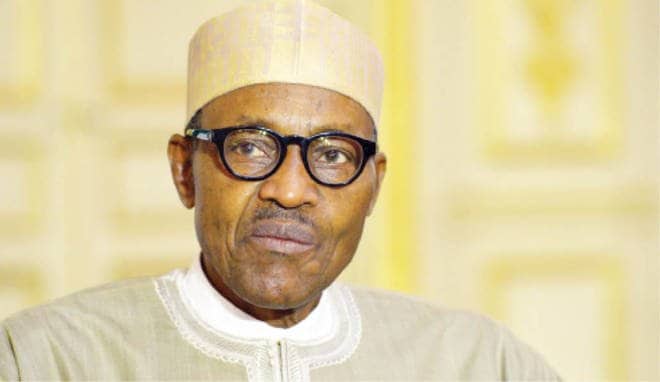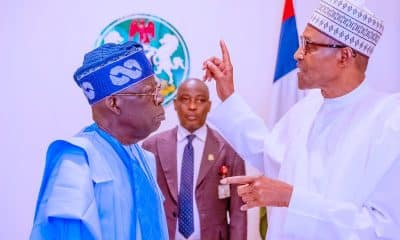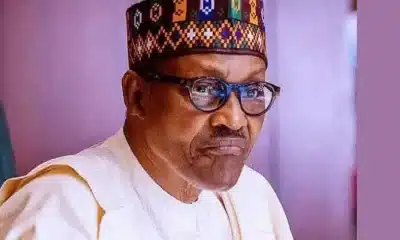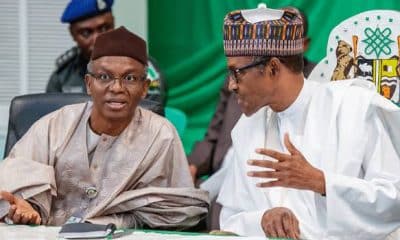Nigeria News
President Buhari Speaks On Eliminating Corruption In Nigeria

President Muhammadu Buhari has once again reinstated the commitment of his administration to eliminate corruption in the country.
Naija News learnt that the President Buhari spoke at the first day of a 2-day conference and awards night organized by National Information Technology Development Agency, NITDA at the International Conference Centre, Abuja
The President, while explaining further said that said his administration was not leaving any stone unturned in the battle against graft while advising the National Information Technology Development Agency, NITDA, to work with all relevant agencies to ensure full compliance with the government directive on preference for locally produced goods and services.
President Buhari declared open the 2018 e-Nigeria international conference and exhibition, which began on Monday, organized by NITDA.
He was accompanied by former Chairman of the Economic and Financial Crimes Commission, EFCC, Nuhu Ribadu who was also the keynote speaker; Minister of Information, Adebayo Shittu; Minister of Youths and Sports, Solomon Dalong; among others.
Buhari also charged NITDA to report any government agency that failed to comply with the new IT Clearance directive.
President Buhar said, “All these are aimed at promoting the digital economy in an era of disruptive technology through effective regulations,”
“Of particular note is NITDA’s initiative focused on the Registration of IT Contractors and Service Providers in collaboration with other regulatory bodies with special emphasis on competencies.
“This will ensure the delivery of quality IT projects, as well as facilitate the development of indigenous IT companies in line with global best practices.
‘‘You may also recall the remark about NITDA’s efforts at enforcing Federal Government’s directive on ensuring that all ICT projects in the country are cleared by it before implementation.
‘‘This will ensure that government’s ICT procurements are transparent, aligned with government’s IT shared vision and policy, lead to cost savings through promotion of shared services, avoid duplication, ensure compatibility of IT systems and improve efficiency in government business, enforce the patronage of indigenous companies where capacity exists; and uphold the highest standards for service delivery.
“In this administration’s efforts at ensuring full realisation of these objectives, a new Circular was issued in August this year, to reiterate this directive.
‘‘NITDA is expected to work with all relevant government agencies to ensure full compliance with this directive. Defaulters of IT Clearance among the public establishments are to be reported to government.
‘‘We are serious about fighting corruption. We must not fail in our quest to eliminate corruption in government businesses and in the wider society.
“I understand that the agency worked with relevant stakeholders in developing the document. I continue to encourage the Agency to use its regulatory instruments in ensuring full socialisation and implementation of this document.
“We emphasized the need for the public service to be highly competitive, innovative and digitally-enabled to deliver public services and effectively drive government programs and policies.
“I note that NITDA and other relevant government agencies have taken this up by creating the enabling environment through the development of policies, frameworks, standards and guidelines.
“I am aware that some of these regulatory instruments have been subjected to critical scrutiny and revision through a series of stakeholder engagements.
“Efforts should be intensified at making them public as well as sensitizing public servants and the general public about the value of these regulatory instruments.
“The enforcement of the use of the policy on Treasury Single Account (TSA), the Integrated Payroll and Personnel Information System (IPPIS) and the Bank Verification Number (BVN) and the impact they have made on the administration’s public financial management reforms.”












